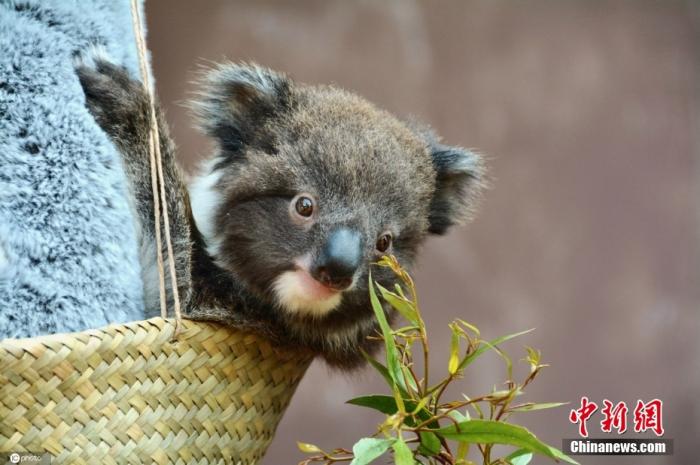[Global Times Comprehensive Report] In February this year, the Australian Department of the Environment announced that the koala was officially listed as an endangered species in major habitats such as New South Wales and Queensland.
To this end, scientists at Newcastle University in Australia suggest that freezing koala sperm is expected to be a key part of the "2050 strategy to save koalas from extinction."
Local time on April 1, 2022, Wiltshire, England, Longleat Wildlife Park weighs koalas every week, because weight is a key indicator for judging whether koalas are healthy, in order to ease koalas in the weighing process. Amid the tension and stress, zoo keepers put a plush koala toy in the weighing basket.
Pictured is a koala in a weighing basket.
Image source: ICphoto
The British "Guardian" reported on the 14th that a research article published on Wednesday in the academic journal "Animal" edited by the University of Cambridge showed that frozen sperm can be used for assisted reproductive technology to impregnate female koalas.
"The sperm of koalas can be cryopreserved, just like in humans," the researchers noted.
Research has also shown that the technology costs 1/12 to 1/5 the current cost of breeding koalas in captivity without destroying the genetic diversity of koalas.
The NSW government has announced that it will allocate $200 million to protect koalas, of which $193.3 million will be used to build koala habitats and protect existing populations over the next five years.
In late 2019 and early 2020, bushfires in New South Wales burned 5.5 million hectares of land and killed about 64,000 koalas.
The Guardian said Australia has the highest rate of species extinction in the world and the climate crisis is expected to further increase the risk of local species extinction.
(Dacho)

